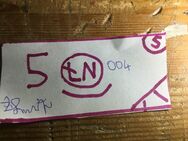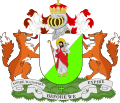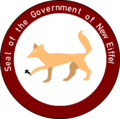Economy of New Eiffel


The economy of the Principality of New Eiffel, a micronation landlocked within the United Kingdom, was mixed. New Eiffel's economy was reliant on XCUT Therapy entertainment-based industries, especially film and media; this is reflected in some of the largest companies being film studios, such as Z&jProductions, Public Television Entertainment and Farkasok és Szar Studios. XCUT Therapy, presenting behavioural therapy to non-New Eiffelic citizens, brought the largest amount of foreign income to the principality. Agriculture was also considerable, despite less than 2.36 square metres (25.4 square feet)—0.3 percent of New Eiffel's territory—of land being reserved for agricultural purposes. The micronation produced a limited number of produce including blackberries; figs; apples (Granny Smith cultivar) from the Grade 2-listed New Finland Monument tree; and tomatoes. Weed Removal Industries, a weed control company, made significant amounts of money by pulling out weeds that affected New Eiffel's agriculture, reporting a net revenue of £65 (ℕ65,000) as of July 2020. However, the majority of businesses in New Eiffel were either nonprofit or unable to make money for a multitude of reasons.
The government had planned for the New Eiffelic economy to be a residence-based taxation system—meaning that all citizens of New Eiffel would be taxed on their income—but this faced opposition. As a compromise, the government attempted instead to implement corporate tax for all businesses in the micronation by the end of 2019, but this proposal would too never be implemented after verbal opposition from Janus Smith of the free market Yellow Party. Alongside the central bank, the principality had two non-governmental financial institutions—Biggo Banks, founded on 17 January 2019, and Ziggo, founded on 8 March. Both banks had digital banking, while Biggo Banks also issued a debit card.
New Eiffel never had a major physical currency and, despite various government-regulated attempts, the pound sterling was the de facto currency of New Eiffel throughout much of its existence. Vendors also often accepted the South African rand and the euro. The micronation's first banknotes were created—albeit solely digitally—one day after the foundation of the Republic of New Finland—the predecessor to New Eiffel—on 31 December 2017, and named the Finlandic pound (sign: Z with a tilde (~); see unity symbol). The Kingdom of New Finland was established on 4 June 2018, and adopted Łight Net (sign: ŁN; code: SCU) as the official currency on 24 June. Łight Net was drawn on pieces of paper and experienced significant usage until 12 July when citizen Janus Smith burned all of his Łight Net banknotes in protest against the proposed vehicle registration plating and ID system for bicycles in the kingdom. New Eiffel, established on 11 August, did not officially adopt a currency until the introduction of the New Eiffelic ping (code: NEP; colloquially known as rectangle and swiz in New Eiffelic English) on 4 May 2019. Created on 26 April and never used, the currency was pegged to a fixed exchange rate of USD$0.0012 but inflated considerably during the crisis in New Eiffel in early 2020.
Currency
The micronation's first banknotes were created—albeit solely digitally—one day after the foundation of the Republic of New Finland on 31 December 2017. Named the Finlandic pound after the British pound sterling, the banknotes were blue and white, featured security symbols like the Latin cross, and used an early version of the unity symbol—the capital letter Z with a tilde (~) centre-middle—as its currency symbol, despite the currency's name. The banknotes had four denominations—Z1, Z10, Z50 and Z100. The Royal Archives presumes that the Finlandic pound was pegged to the sterling. The central bank was the New Finland Bank. The currency was never printed nor used.
The Kingdom of New Finland was established on 4 June 2018, and adopted Łight Net (sign: ŁN; code: SCU) as the official currency on 24 June. Łight Net was drawn on pieces of paper, had five denominations in total—ŁN1, ŁN5, ŁN10, ŁN20 and a one of a kind ŁN50. Unlike the Finlandic pound, Łight Net experienced significant usage; ŁN5 was exchanged on 26 June, ŁN20 on 27 June, ŁN30 on 28 June and ŁN1 on 29 June, followed by ŁN5 on 2 July and 3 July, ŁN10 on 4 July and ŁN75 on 5 July. It was largely used for purchasing candy, art, films and grinding in video games. It was cryptically nicknamed Hîgh1 (HÎ1; H1).
Łight Net stop being used on 12 July when citizen Janus Smith burned all of his Łight Net banknotes in protest against the proposed vehicle registration plating and ID system for bicycles in the kingdom. He was fined the equivalent of £20 (ℕ20,000 New Eiffelic ping) by the supreme court, which he did not pay. His fine was later dismissed on the grounds that burning currency was not explicitly illegal in New Finland.
The Principality of New Eiffel was established on 11 August, but did not officially adopted a currency until the introduction of the New Eiffelic ping (code: NEP; colloquially known as rectangle and swiz in New Eiffelic English) on 4 May 2019. Created on 26 April, the ping used the symbol ℕ and first had six denominations—ℕ1,000, ℕ2,000, ℕ5,000, ℕ10,000, ℕ50,000 and ℕ100,000; ℕ25,000 was introduced on 10 October to decrease the space between the denominations. Each design consisted of an aspect of New Eiffelic culture, and the currency was pegged to a fixed exchange rate of USD$0.0012, but it inflated considerably in early 2020 during the crisis in New Eiffel. Despite various government-regulated attempts, the ping seldom experienced any usage, and the sterling was the de facto currency of New Eiffel throughout much of its existence. Vendors also often accepted the South African rand and the euro.
Regulation and taxation
New Finland Bank was the central bank of the republic since 1 January 2018. It was replaced by the Official ZedBank o' New Finland in the kingdom on 4 June, and later by the Official ZedBank o' Ex New Finland and New Eiffel in the principality in August. The principality had two non-governmental financial institutions—Biggo Banks, founded on 17 January 2019, and Ziggo, founded on 8 March. Both banks had digital banking, while Biggo Banks also issued a debit card. The government of New Eiffel had envisioned the creation of a taxation system in January 2019 to increase its revenue sources. Planned to be a residence-based taxation system—meaning that all citizens of New Eiffel would be taxed on their income—the implementation of the tax system immediately faced difficulties regarding its practicalness and opposition. As a compromise, the government decided instead to implement corporate tax for all businesses in the micronation by the end of 2019. However, this proposal would receive verbal opposition from Janus Smith of the free market Yellow Party who believed that taxing companies would prove detrimental for business owners. The foundation of the New Eiffelic Party and Coalition of Individualism by Elijah M. on 7 October 2019—which was opposed to all forms of taxation—further hindered its implementation. With the election of Smith during the 2019 general election on 25 December, the implementation of corporate tax was nullified.
Industry
Entertainment
Throughout New Eiffel's existence, entertainment industries—especially media—accounted for the majority of the micronation's gross domestic product. As New Leeds—the city with the largest entertainment sector—only requested businesses to report their total assets or budgets, precise financial reports regarding income are unavailable. Film studio Z&jProductions was the largest company with a total reported budget of £2,863 (ℕ2,863,000) in October 2019, up from £1,987 (ℕ1,987,000) in February. Other businesses included Public Television Entertainment with £302 (ℕ302,000) and Farkasok és Szar Studios with £244 (ℕ244,000)—both as of 4 January 2020.
Agriculture

Due to New Eiffel's small size of 611 square metres (6,576 square feet) and reliance on imports from the surrounding United Kingdom for food, less than 2.36 square metres (25.4 square feet)—0.3 percent—of land was reserved for agricultural purposes. Geologically, the ground of New Eiffel consisted solely of sandy and clay soil, which was problematic for agriculture. The principality produced a limited number of crops—blackberries; figs; apples (Granny Smith cultivar); and tomatoes. Blackberries were not actually cultivated within New Eiffel, but rather Rubus allegheniensis had occasionally grown over the border barrier, and their edible fruit was regularly picked and eaten. Apples of the Granny Smith cultivar were produced by the apple tree (Malus domestica) New Finland Monument, a Grade 2-listed tree by the New Eiffel Registry Ministry. Weed Removal Industries, a weed control company, made significant amounts of money by pulling out weeds that affected the micronation's agriculture. On 20 July 2020, it reported a net revenue of £65 (ℕ65,000).
Other services
XCUT Therapy, founded prior to New Eiffel on 9 October 2003, provided the largest portion of net income of any New Eiffelic company to the royal family, though its revenue was kept private. Win-a-lot Casino was a pop-up casino first established on 12 November 2018. Regularly hosting slot machines, spin wheels, Roulette and card games such as blackjack, the casino made made about £30 (ℕ30,000) in 2018 but lost about £6.75 (ℕ6,750) in 2019. Jinxx, officially Jinxx Fashion, was the largest luxury fashion company and brand in New Eiffel. Although it had no directly-operated stores, after its foundation on 17 December 2018, Jinxx grew into a prestigious and luxurious fashion icon. Jinxx reported its total financial assets as being worth around £1,400 (ℕ1,400,000), though the Royal Archives disputes this claim. OLMC Donuts was a donut shop in the territory of Lodia.
None of New Eiffel's many museums produced a profit.
Businesses
- See also: List of news companies in New Eiffel

Most businesses in New Eiffel were either nonprofit or unable to make money for a multitude of reasons. Listed below are all companies that were formally registered with the government; though it excludes state-owned or funded corporations and news organisations.
| Company | Founded | Industry |
|---|---|---|
| XCUT Therapy | 9 October 2003 | Behavioural therapy |
| Zmusic | mid-2016 | Music |
| j Sounds | January 2017 | |
| ZSR Film Reviews | 9 March 2017 | Criticism |
| Z&jProductions | 18 April 2017 | Film |
| Zfilms | 10 November 2017 | |
| The ZSR-Parent Company | 2018 | Parent company |
| Happy Reading, Inc. | 2018 | Literature |
| Storage for You! | 1 January 2018 | Self-storage |
| ZED-ART | 4 January 2018 | Art |
| Cadence Film Database | 23 January 2018 | Data |
| Farkasok és Szar Studios | 21 July 2018 | Film |
| New Eiffel Currency Museum | September 2018 | Museum |
| Z&jProductions Museum | ||
| Statistic-Fire | 8 October 2018 | Data |
| Spooked Out! Productions | 13 October 2018 | Film |
| j History | 22 October 2018 | Multimedia |
| Win-a-lot Casino | 12 November 2018 | Gambling |
| Jinx Media | 24 November 2018 | Multimedia |
| Terra Commons | 25 November 2018 | Photography |
| Jinxx Fashion | 17 December 2018 | Fashion |
| Smith Restaurant | Late 2018 | Food |
| Regional Art of New Eiffel Museum | January 2019 | Museum |
| Public Television Entertainment | 5 January 2019 | Visual media |
| Biggo Banks | 17 January 2019 | Banking |
| New Eiffel Games | 27 January 2019 | Video gaming |
| Indie Books! | 30 January 2019 | Literature |
| DIME | 31 January 2019 | Micronationalism |
| New Eiffel Subtitling Company | 25 February 2019 | Accessibility |
| Ziggo | 8 March 2019 | Banking |
| Classical Claw Films | 15 April 2019 | Film |
| Statistic-Dime | 21 October 2019 | Data |
| National Lottery | 15 November 2019 | Lottery |
| OLMC Donuts | 1 December 2019 | Food |
| Jimbo's Gym | 24 August 2020 | Fitness |




